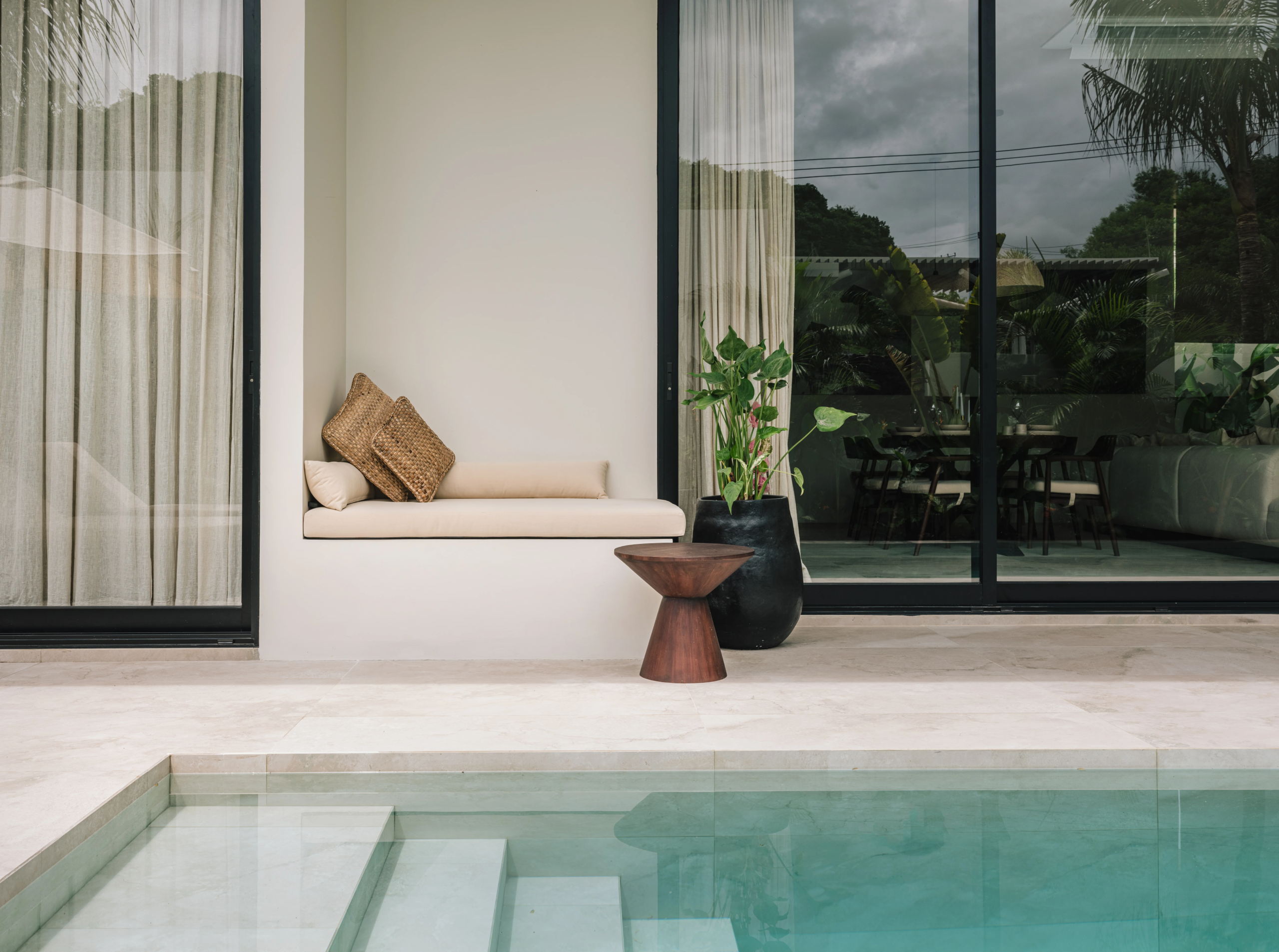Last Updated on September 11, 2024 by Yasmina
When investing in real estate in Lombok, Indonesia, negotiating property prices effectively can make a significant difference in securing a good deal. The island’s growing real estate market offers opportunities for both buyers and sellers, but understanding local practices and strategies is essential for successful negotiations.
This guide provides practical tips and insights on negotiating property prices in Lombok, from understanding the market trends to closing the deal.
Table of Contents
1. Understanding the Lombok Real Estate Market
Before entering into negotiations, it’s important to have a solid understanding of the Lombok real estate market. This knowledge will give you a better idea of what to expect in terms of pricing, demand, and availability.

A. Market Trends and Property Values
Overview:
Lombok’s real estate market trends have been growing steadily, driven by increased tourism, infrastructure development, and interest from both local and international investors. However, property values can vary significantly depending on the location, property type, and market conditions.
Tips:
- Research Recent Sales: Look at recent sales of similar properties in the area to get a sense of current market trends and values.
- Understand Location Factors: Prime locations like Kuta Lombok, Selong Belanak, and the Gili Islands generally command higher prices, while more remote areas may offer better deals.
Example:
If you’re interested in a villa in Kuta Lombok, research similar properties recently sold to understand the going rate and avoid overpaying.
B. Property Demand and Availability
Overview:
Understanding the level of demand for properties in Lombok is key to negotiating effectively. High demand can limit your negotiating power, while lower demand may give you more leverage.
Tips:
- Identify Supply and Demanded Market Trends: Pay attention to whether the market currently favors buyers or sellers. In a buyer’s market, you may have more room to negotiate.
- Assess Property Availability: If similar properties are readily available, you may have more bargaining power, but if inventory is limited, sellers may be less flexible on price.
Example:
If you find multiple similar properties for sale in the same area, you might use this as leverage to negotiate a lower price by highlighting the competition.
2. Building a Strong Negotiation Strategy
To negotiate effectively, you’ll need to develop a clear strategy based on your goals, budget, and the specific property you’re interested in.
A. Setting Your Budget and Limits
Overview:
Before entering negotiations, determine your maximum budget and be prepared to walk away if the price exceeds your limit. Having a clear budget will help you avoid overpaying and ensure that you stick to your financial plan.
Tips:
- Establish a Price Range: Set a target price range that reflects both your budget and the property’s market trends and value.
- Identify Non-Negotiables: Determine which aspects of the deal are non-negotiable for you, such as price, closing costs, or property conditions.
Example:
If your budget for a villa in Kuta Lombok is IDR 3 billion (approximately USD 195,000), set your initial offer below this amount to leave room for negotiation.
B. Making an Initial Offer
Overview:
Your initial offer sets the tone for the negotiation. It should be reasonable but also leave room for bargaining. Offering too low may insult the seller, while offering too high can limit your ability to negotiate further.
Tips:
- Start Lower: Begin with an offer that is lower than your target price but still within a reasonable range. This gives you room to negotiate upward if necessary.
- Justify Your Offer: Explain your reasoning for the offer, such as market research, property condition, or comparable sales. This can make your offer seem more reasonable and less arbitrary.
Example:
If a property is listed at IDR 3.5 billion (approximately USD 227,500), you might start with an offer of IDR 3.1 billion (approximately USD 202,000) based on recent sales of similar properties.
C. Highlighting Property Issues
Overview:
Identifying and highlighting any issues with the property can be a powerful negotiation tool. Whether it’s needed repairs, outdated fixtures, or legal complications, pointing out these issues can justify a lower offer.
Tips:
- Conduct a Thorough Inspection: Hire a professional to inspect the property and identify any issues that could affect its value.
- Use Findings as Leverage: If the inspection reveals significant problems, use this information to negotiate a price reduction or ask the seller to address the issues before closing.
Example:
If an inspection reveals that the property needs a new roof, you could request a price reduction to cover the cost of repairs, or negotiate that the seller completes the repairs before the sale.
3. Leveraging Local Expertise
Working with local experts can significantly enhance your ability to negotiate effectively. Real estate agents, lawyers, and other professionals familiar with the Lombok market trends can provide valuable insights and assistance.

A. Engaging a Local Real Estate Agent
Overview:
A reputable local real estate agent can be an invaluable asset during negotiations. They can provide insights into the market, recommend negotiation strategies, and act as an intermediary between you and the seller.
Benefits:
- Market Knowledge: Local agents deeply understand property values, market trends, and the negotiation tactics that work best in Lombok.
- Negotiation Skills: Experienced agents can negotiate on your behalf, using their knowledge of local customs and practices to secure the best deal.
Example:
A local real estate agent in Lombok might advise you on how much flexibility a seller is likely to have based on their motivation to sell and current market trends and conditions.
B. Consulting a Property Lawyer
Overview:
Hiring a property lawyer in Lombok can help ensure that your negotiations and the subsequent transaction are legally sound. A lawyer can assist with contract review, due diligence, and ensuring compliance with Indonesian property laws.
Benefits:
- Legal Protection: A lawyer can protect your interests by ensuring that the terms of the sale are fair and legally binding.
- Contract Negotiation: They can help negotiate the terms of the contract, including contingencies, payment schedules, and responsibilities for closing costs.
Example:
A property lawyer can help you negotiate favorable terms in the sale agreement, such as ensuring that any outstanding property taxes are paid by the seller before closing.
4. Negotiating Specific Terms and Conditions
Beyond the purchase price, there are several other terms and conditions that can be negotiated during a property transaction in Lombok. These can impact the overall value of the deal and should be carefully considered.
A. Closing Costs and Fees
Overview:
In Indonesia, closing costs are often shared between the buyer and the seller. However, the specific allocation of these costs can be negotiated.
Tips:
- Request Seller Contributions: Ask the seller to cover certain closing costs, such as notary fees, transfer taxes, or legal fees, as part of the negotiation.
- Negotiate Payment Terms: You can also negotiate payment schedules, including the timing of deposits and final payments.
Example:
During negotiations, you could request that the seller pay the notary fees or contribute to the transfer tax cost as part of the deal.
B. Contingencies and Conditions
Overview:
Contingencies are conditions that must be met for the sale to proceed. Common contingencies include financing approval, satisfactory property inspections, and clear title verification.
Tips:
- Include Essential Contingencies: Ensure the contract includes contingencies that protect your interests, such as a clause allowing you to back out if the property inspection reveals major issues.
- Negotiate Timelines: You can negotiate the timelines for meeting contingencies, such as the time allowed for securing financing or completing inspections.
Example:
You could include a contingency in the contract that allows you to withdraw from the sale if financing is not secured within a specific period, or if legal issues with the property title arise.
C. Furnishings and Inclusions
Overview:
In Lombok, it’s common for properties to be sold partially or fully furnished. Negotiating the inclusion of furnishings, appliances, and other items can add value to the deal.
Tips:
- Clarify Inclusions: The contract should clearly specify which items are included in the sale, such as furniture, kitchen appliances, or outdoor equipment.
- Negotiate Additional Inclusions: If certain items are not included, consider negotiating their inclusion as part of the deal.
Example:
If you’re purchasing a partially furnished villa, you might negotiate to include additional furnishings or appliances that were not originally part of the sale.
5. Closing the Deal
Once you and the seller have agreed on the terms, it’s time to finalize the transaction. Ensuring a smooth closing process involves careful attention to detail and coordination with all parties.
A. Finalizing the Sale Agreement
Overview:
After negotiations are complete, both parties should finalize and sign the sale agreement. This contract legally binds the buyer and the seller to the agreed-upon terms.
Tips:
- Review All Terms: Carefully review the final contract to reflect all negotiated terms, conditions, and contingencies accurately.
- Seek Legal Advice: Have your lawyer review the contract to confirm that it complies with Indonesian property laws and protects your interests.
Example:
Before signing the sale agreement, double-check that all negotiated terms, such as price, closing costs, and inclusions, are clearly outlined in the contract.
B. Completing Due Diligence
Overview:
Due diligence involves verifying that the property is free of legal issues, that all necessary permits and documents are in place, and that the property title is clear.
Tips:
- Title Search: Ensure the property’s title is clear of liens, disputes, or other encumbrances.
- Check Legal Compliance: Verify that the property complies with local zoning and building regulations.
Example:
Your lawyer can conduct a title search to confirm that the property has no outstanding legal issues before the sale is finalized.
C. Final Payment and Transfer of Ownership
Overview:
Once all conditions are met, the final payment is made, and ownership is officially transferred to you. This process is typically overseen by a notary, who ensures the transaction is completed according to Indonesian law.
Tips:
- Ensure All Payments Are Documented: Keep records of all payments made during the transaction, including deposits and final payments.
- Confirm Title Transfer: Ensure that the title transfer is properly registered with the local land registry, and that you receive the official title deed.
Example:
After making the final payment, confirm with the notary that the title transfer has been completed and that you are now the legal owner of the property.
Conclusion
Negotiating property prices in Lombok requires market knowledge, strategic thinking, and attention to detail. By understanding the local real estate landscape, working with experienced professionals, and carefully negotiating terms, you can secure a favorable deal on your property purchase. Effective negotiation will help you maximize value and achieve your real estate goals in Lombok, whether you’re buying a villa for personal use, investment, or retirement.
About Nour Estates
We started Nour Estates with a simple idea: to make finding your dream land in Lombok as easy and enjoyable as a day at the beach. Our team is a mix of local folks and people from around the world who fell in love with Lombok just like you. We’ve been in your shoes, faced the challenges of buying land here, and learned all the ins and outs. Now, we’re here to share that knowledge with you.
We are here to find you the perfect land to invest in. Contact us today, and let’s start this exciting journey together!

































